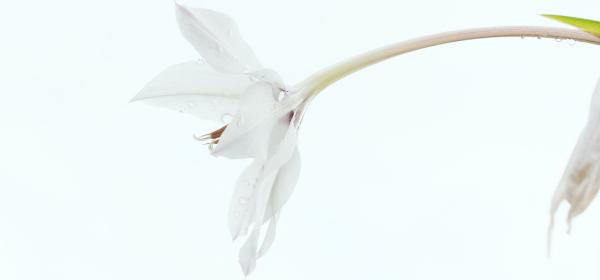We’ve already learned about ikigai, now it’s time to find out about wabi-sabi! The Land of the Rising Sun contributes another approach to developing a balanced relationship with yourself and the world around you. But what exactly is it? The EVE webmagazine team takes a closer look.
Discretion and acceptance
The West has now embraced wabi-sabi, in the form of a personal development philosophy. However, it started out as an approach to how we view beauty, combining “wabi” (that could be translated as something approaching sorrowful intonations) with “sabi” (which relates to the effects of time passing).
In some ways, wabi-sabi is a simple look at reality; accepting that nothing stays the same and that change is the very essence of things.
An aesthetic philosophy passed down from Zen Buddhism
The origins of wabi-sabi can be traced back to Murata Jukō, a fifteenth-century Zen monk who transformed what had been a lavish tea ceremony into a peaceful and calming experience, focusing its refinement on simplicity by using basic hand-made utensils, in contrast with the sophisticated crockery and purposefully ostentatious ceremonies that were popular at the time.
Wabi-sabi gradually became an art of living, and its influence spread to the arts, interior design, style and approaches to thinking.
Another way of looking at the Japanese miracle
The American artist Leonard Koren, who founded WET Magazine, a hedonist periodical proudly dedicated to the art of “gourmet bathing”, whose content focused on the pleasures in life, introduced wabi-sabi to the West during the 1980s. Jetting back and forth from San Francisco to Tokyo, he began creating an anthropological work based on the art of living, and in 1988 published 283 useful ideas from Japan, a kind of alternative guidebook for economics and society, designed for an America that yearned to reproduce the success of the “Japanese miracle” but couldn’t break free from their own organizational systems and performance criteria. Koren believed that Japan was able to develop at warp speed and step up its influence because of its deeply-rooted cultural foundations rather than its approach to industry, because industrial models are all doomed to reach their limits at some time or another.
The metaphysics of completeness
So what are those robust cultural foundations that can survive enormous shifts in economic and social paradigms? The metaphysics of completeness, summarizes Koren: a form of spirituality imbued with serenity; one that seeks out simplicity, welcomes imperfection and considers transformations as an integral part of life for beings and things.
In wabi-sabi, failure is not wrong, old age doesn’t mean deterioration, and injury doesn’t mean damage: we are beings and we are alive, merely marked by the inevitable passage of time and transformed by accidents, rifts, changes, etc.
Wabi-sabi in personal development
At a time when we are looking for ways to take a breath and let go, ways to enhance our resilience, ways to accept ourselves and the world around us, ways to acknowledge that we have the right to make mistakes and ways to appropriate transformations in the workplace, wabi-sabi is extremely appealing. Its transposition to personal development techniques involves rejecting perfectionism and gaining humility. And it can be applied to our personal life (by taking the view that it isn’t necessarily essential to have a perfectly-organized house resembling a show home, and rejecting the exhausting attitude of always wanting to do better… hmm,.. We’ve already covered that in the Superwoman complex!) and our life at work (by taking the view that goals are set in order to be reached, and not necessarily exceeded!).
Back to basics! Wabi-sabi is about listening and satisfying our genuine needs, getting rid of all senseless duty and obligation. And it starts with how other people view us, or rather how we think they view us. And while we’re at it, it’s also about stopping second-guessing other people’s intentions and expectations, leaving room for them to express their needs overtly.
Wabi-sabi also encourages kindness. Kindness to yourself (the person looking back at you in the mirror isn’t so bad really, if you look at them sympathetically) and kindness to others (they are who they are, with their own specific characters, and not just a list of qualities and weaknesses).
Finally, it’s about allowing yourself to enjoy simple wonderment. That doesn’t mean excessive enthusiasm, which can sometimes take up far too much energy for yourself and be invasive for others. It’s just the joy of contemplating reality from a sentimental standpoint, welcoming the emotions that are generated, experiencing the dynamism that can be brought about by a caring attitude, the sweet nostalgia of listening to a song from your childhood, the delight generated by good news, or the feeling of calm provided by a reassuring framework.
Marie Donzel, for the EVE webmagazine. Translated from French by Ruth Simpson.






